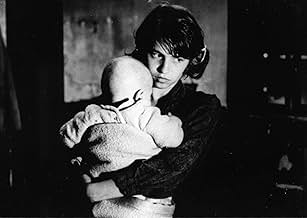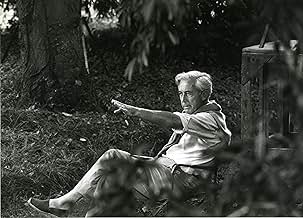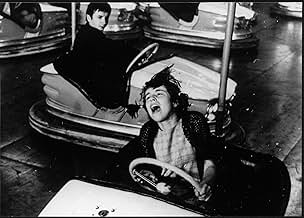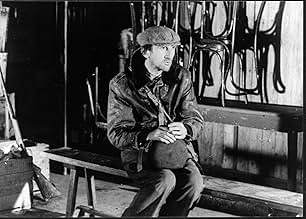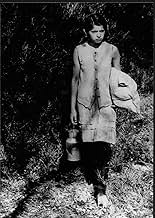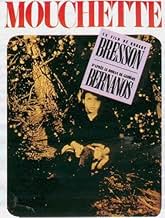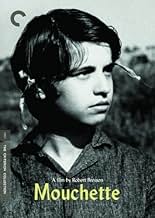Mouchette
- 1967
- Tous publics
- 1h 21m
IMDb RATING
7.7/10
14K
YOUR RATING
A young girl living in the French countryside suffers constant indignities at the hand of alcoholism and her fellow man.A young girl living in the French countryside suffers constant indignities at the hand of alcoholism and her fellow man.A young girl living in the French countryside suffers constant indignities at the hand of alcoholism and her fellow man.
- Director
- Writers
- Stars
- Awards
- 5 wins & 1 nomination total
- Director
- Writers
- All cast & crew
- Production, box office & more at IMDbPro
Featured reviews
Never before has cinema been this simple and honest. No one makes films with more emotion than Bresson and no one puts less emotion in their films than he. I could cite so many Bressonian cliches and talk of his uniquely personal style which by 1967 was firmly established, especially since he had abandoned the voice-over he used in the 50s. I will point out his use of sound and approach to acting which remain so distinctive and by now so familiar. There is nothing in Mouchette that is new, especially after Balthazar, what remains is the story of Mouchette, told with the utter grace and passion that makes this film a masterpiece that transcends technique, even cinema itself, and makes most cinema look frivolous in the process.
Finally I must mention the films ending, which I rank with that of Balthazar as the most beautiful I have seen.
Finally I must mention the films ending, which I rank with that of Balthazar as the most beautiful I have seen.
It seems entirely appropriate that the film opens with the metaphor of birds being snared as this seems to apply not only to Mouchette's life, but to Bresson's approach to the viewer as well.
For what, after all, is the director attempting to do here? Are we really to regard this as an unblinking gaze into the life of an abused, outcast girl? If so, why is Bresson so intent on excluding even the most fleeting moments of joy (or at least humor) that enter even the darkest of lives (I believe a philosopher once said "alas, joy too must have its day")? It is pretty telling that the one scene involving happiness for Mouchette is the most monotonous and lifeless in the picture (the bumper cars). Not only are we not allowed to experience her joy, but Bresson is careful to distance us from the real experience of her pain as well. This is done by the use of "gestures" (particularly prominent in Bresson's later films) that "signify" a character's experience rather than giving us the person's individualized emotional and visceral reactions to events. Thus the assault on Mouchette is shown in a distant, almost pantomimed manner, her relationship with her father is suggested by dropping coins in his hand, a disembodied hand slapping her face, etc. So, are we really to identify with Mouchette, to feel her pain, seeing how her experience of life intersects with our own in only the most symbolic, muted fashion? Is this really "compassion" and is this really Bresson's purpose?
Or is Mouchette a figure that Bresson uses (and dehumanizes), as literally every character in the movie uses her, to achieve other purposes? In this case the selling of a particular view of the world. One which sees the world as a snare, both in its joy and its pain, that is "saved" only by the (symbolic) suffering of the innocent, and transcended/transformed only by death. In other words a viewpoint that that advocates looking beyond (or turning away from)life to find "transcendent" truths. A view based on judgement rather than acceptance. And if this is "the truth" why must so much of what we experience as truth (such as joy, intimacy, occasional feelings of "oneness" with the world) be so forcibly excluded? Are these all really illusions, the world simply a snare? And without acceptance of ALL of Mouchette's reality can she,or any of us, really be redeemed?
Yes, Bresson is a meticulous, incisive, and occasionally powerful filmaker. But is he really honest? Are there some TRUTHS that he can't face (and so desperately restricts his view). In MOUCHETTE we are a little more aware of the puppeteer's strings than usual. 7 out of 10.
For what, after all, is the director attempting to do here? Are we really to regard this as an unblinking gaze into the life of an abused, outcast girl? If so, why is Bresson so intent on excluding even the most fleeting moments of joy (or at least humor) that enter even the darkest of lives (I believe a philosopher once said "alas, joy too must have its day")? It is pretty telling that the one scene involving happiness for Mouchette is the most monotonous and lifeless in the picture (the bumper cars). Not only are we not allowed to experience her joy, but Bresson is careful to distance us from the real experience of her pain as well. This is done by the use of "gestures" (particularly prominent in Bresson's later films) that "signify" a character's experience rather than giving us the person's individualized emotional and visceral reactions to events. Thus the assault on Mouchette is shown in a distant, almost pantomimed manner, her relationship with her father is suggested by dropping coins in his hand, a disembodied hand slapping her face, etc. So, are we really to identify with Mouchette, to feel her pain, seeing how her experience of life intersects with our own in only the most symbolic, muted fashion? Is this really "compassion" and is this really Bresson's purpose?
Or is Mouchette a figure that Bresson uses (and dehumanizes), as literally every character in the movie uses her, to achieve other purposes? In this case the selling of a particular view of the world. One which sees the world as a snare, both in its joy and its pain, that is "saved" only by the (symbolic) suffering of the innocent, and transcended/transformed only by death. In other words a viewpoint that that advocates looking beyond (or turning away from)life to find "transcendent" truths. A view based on judgement rather than acceptance. And if this is "the truth" why must so much of what we experience as truth (such as joy, intimacy, occasional feelings of "oneness" with the world) be so forcibly excluded? Are these all really illusions, the world simply a snare? And without acceptance of ALL of Mouchette's reality can she,or any of us, really be redeemed?
Yes, Bresson is a meticulous, incisive, and occasionally powerful filmaker. But is he really honest? Are there some TRUTHS that he can't face (and so desperately restricts his view). In MOUCHETTE we are a little more aware of the puppeteer's strings than usual. 7 out of 10.
Among the best things that can happen to me as a viewer is to watch a filmmaker grow into mastery, and I've just gone through a series of viewing where Bresson grew before my eyes. He wasn't a master before Balthazar in my estimation but he was one now.
See, he had started with ambitious work in Diary of a Priest, but something must have troubled him, the spiritual search was coming off as emotional anguish, resulting in sentimentality. His next three were all about finding ways to quell this, fasting the eye, muting the emotion.
This is all the more reason to celebrate him, because it could have gone either way. He could have turned out film after film where he mutes expression and turns actors into bare stumps and called it pure. But if this was purity, where was the life in which the pure is woven through? Bresson matters I believe because he left the stone floor of his ascetic phase to grow into this, his sculpting phase.
This is a sculpture of moving image and sound, even more so than Balthazar, even more purely about the rooms and spaces in which a young girl faces the duplicity of life. It's all in how he chisels the air with the camera, he does this in three parts.
The day before, with its moments of small everyday cruelty and unexpected kindness alike. She has a beautiful voice but won't sing with her classmates until forced, a passing woman unexpectedly gives her money for the bumping cars, but her dalliance with a boy is cut short and she has to go sit with her father. It's heart-aching because all she needs is someone to mind her and no one does outside of making her behave how they want to, most of us have been savaged this way as kids.
The night of unfathomable emotions out in the woods, and look how masterfully. Why she does what she does in the cabin, why she swears to protect his secret and professes love, perhaps intuitively protecting herself, perhaps asserting herself against authority, this is all as unfathomable as why the man goes back out to commit violence. It's all in that shot where the two men laugh, for no reason other than all this being absurd, beneath a dark sky, and the wind that blows all through the night.
In the third part of the film we have the day after, with this complicated human nature brought to the stark light of what other people think. Bresson shows us judgment and cynicism, and even the old woman's advice about death is waved off; too musty for a young girl, more advice.
So how poignant to see this shift in Bresson? He gives us by the end a more eloquent Jeanne D'arc, now the dogmatist interrogators become your small-minded neighbors and Joan is neither pure nor certain in any way about the truth of what she experienced. No ceremonial death. And how deep it cuts, that she may have wanted to ask her mother for advice, unburden the confusion, but has to go through it alone.
So after a series of Bresson viewings, I will come to rest here. Antonioni would take home the Palm that year but Bresson had conquered his obstacles and arrived fully. The title of Tarkovsky's book best describes what he does here, and you can see the Tati influence as a new tool that he didn't have back in Pickpocket. He sculpts an external time, but now in such a way that the pure is found where it grows roots and rustles, among life.
It would be Tarkovsky's turn now to shoulder this legacy, and Dreyer's, asking himself, what kind of time? We dream and yearn with an asymmetric logic and mingle with our reflection. It would be one of the great leaps in the cinema but for that we'd have to go forward.
See, he had started with ambitious work in Diary of a Priest, but something must have troubled him, the spiritual search was coming off as emotional anguish, resulting in sentimentality. His next three were all about finding ways to quell this, fasting the eye, muting the emotion.
This is all the more reason to celebrate him, because it could have gone either way. He could have turned out film after film where he mutes expression and turns actors into bare stumps and called it pure. But if this was purity, where was the life in which the pure is woven through? Bresson matters I believe because he left the stone floor of his ascetic phase to grow into this, his sculpting phase.
This is a sculpture of moving image and sound, even more so than Balthazar, even more purely about the rooms and spaces in which a young girl faces the duplicity of life. It's all in how he chisels the air with the camera, he does this in three parts.
The day before, with its moments of small everyday cruelty and unexpected kindness alike. She has a beautiful voice but won't sing with her classmates until forced, a passing woman unexpectedly gives her money for the bumping cars, but her dalliance with a boy is cut short and she has to go sit with her father. It's heart-aching because all she needs is someone to mind her and no one does outside of making her behave how they want to, most of us have been savaged this way as kids.
The night of unfathomable emotions out in the woods, and look how masterfully. Why she does what she does in the cabin, why she swears to protect his secret and professes love, perhaps intuitively protecting herself, perhaps asserting herself against authority, this is all as unfathomable as why the man goes back out to commit violence. It's all in that shot where the two men laugh, for no reason other than all this being absurd, beneath a dark sky, and the wind that blows all through the night.
In the third part of the film we have the day after, with this complicated human nature brought to the stark light of what other people think. Bresson shows us judgment and cynicism, and even the old woman's advice about death is waved off; too musty for a young girl, more advice.
So how poignant to see this shift in Bresson? He gives us by the end a more eloquent Jeanne D'arc, now the dogmatist interrogators become your small-minded neighbors and Joan is neither pure nor certain in any way about the truth of what she experienced. No ceremonial death. And how deep it cuts, that she may have wanted to ask her mother for advice, unburden the confusion, but has to go through it alone.
So after a series of Bresson viewings, I will come to rest here. Antonioni would take home the Palm that year but Bresson had conquered his obstacles and arrived fully. The title of Tarkovsky's book best describes what he does here, and you can see the Tati influence as a new tool that he didn't have back in Pickpocket. He sculpts an external time, but now in such a way that the pure is found where it grows roots and rustles, among life.
It would be Tarkovsky's turn now to shoulder this legacy, and Dreyer's, asking himself, what kind of time? We dream and yearn with an asymmetric logic and mingle with our reflection. It would be one of the great leaps in the cinema but for that we'd have to go forward.
Just like I remembered. The face of Nadine Nortier has not changed. The unbelievable "Mouchette" in this unforgettable Robert Bresson masterpiece. I hadn't seen the film since I was a teen ager. I saw it again last night and as if by magic it felt more contemporary today than it did then and then, let me tell you, it felt pretty real in its own rigorous lyrical style. What a shockingly wonderful effect a film like this could have on teen agers today. To stay with a character who takes us with nothing more than her naked truth through a landscape of absolute desolation. Her innocence intact, in spite of the outrage. Her ultimate act as breathtaking as anything we have ever seen on the screen, before or since. I tried to show the film to a group of twentysomethings, all of them walked away within the first fifteen minutes. All except one, a boy of 21, he had escaped Bosnia with his brother a few short years ago. As the film ended I looked at him. He was silent. He spoke without looking at me "can I see it again?" That's at the center of the experience that provides this film. "Mouchette" is meant for everyone, but it'll touch only some.
My Rating : 9/10
Bresson is heralded as an important filmmaker in world cinema. I absolutely love 'Mouchette' and it is a masterpiece of world cinema. It was on Tarkovsky's top 10 films list he made for Sight & Sound.
Bresson's other famous film Au Hasard Balthasar and Mouchette have common themes of abuse and negligence of the main characters. This film has the formal inevitability of tragedy, and is soaked through with a species of lyrical, desperate sadness. This quality, and the compelling aesthetic seriousness with which Bresson addresses his themes of suffering, compassion and the rural poor, are very remarkable indeed. Mouchette is a visionary, poetic film, fraught with elusive, unsettling meanings: a classic cinematic text.
Bresson is heralded as an important filmmaker in world cinema. I absolutely love 'Mouchette' and it is a masterpiece of world cinema. It was on Tarkovsky's top 10 films list he made for Sight & Sound.
Bresson's other famous film Au Hasard Balthasar and Mouchette have common themes of abuse and negligence of the main characters. This film has the formal inevitability of tragedy, and is soaked through with a species of lyrical, desperate sadness. This quality, and the compelling aesthetic seriousness with which Bresson addresses his themes of suffering, compassion and the rural poor, are very remarkable indeed. Mouchette is a visionary, poetic film, fraught with elusive, unsettling meanings: a classic cinematic text.
Did you know
- TriviaIt was rumored for years that the trailer for this film was by Jean-Luc Godard, and he has recently confirmed this by programming it in a self-curated retrospective of his work. The trailer is virtually a miniature essay on (or subversion of) the film, jarringly inter-cutting excerpts from it with a written commentary that calls it "Christian and sadistic."
- Goofs(at around 1 min) The canteen changes position after being dropped.
- ConnectionsEdited into Bande-annonce de 'Mouchette' (1967)
- SoundtracksMagnificat
Written by Claudio Monteverdi
Performed by Les Chanteurs de St. Eustache
Conducted by R.P. Émile Martin
- How long is Mouchette?Powered by Alexa
Details
- Release date
- Country of origin
- Language
- Also known as
- Muset
- Filming locations
- Apt, Vaucluse, France(landscape scenes)
- Production companies
- See more company credits at IMDbPro
- Runtime
- 1h 21m(81 min)
- Color
- Sound mix
- Aspect ratio
- 1.66 : 1
Contribute to this page
Suggest an edit or add missing content

